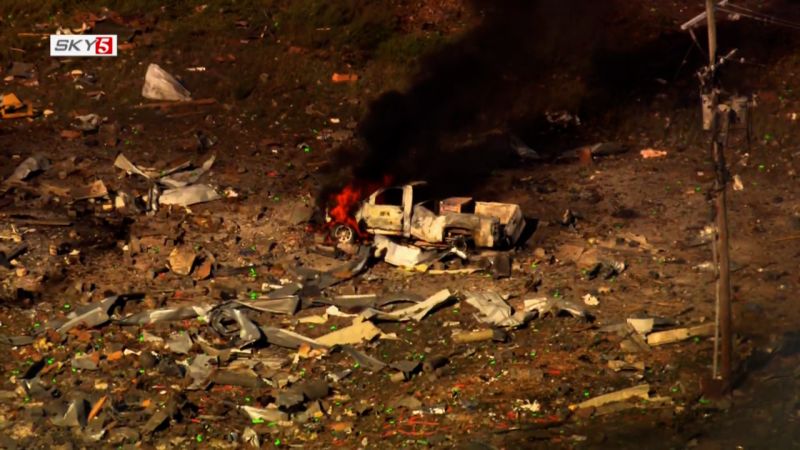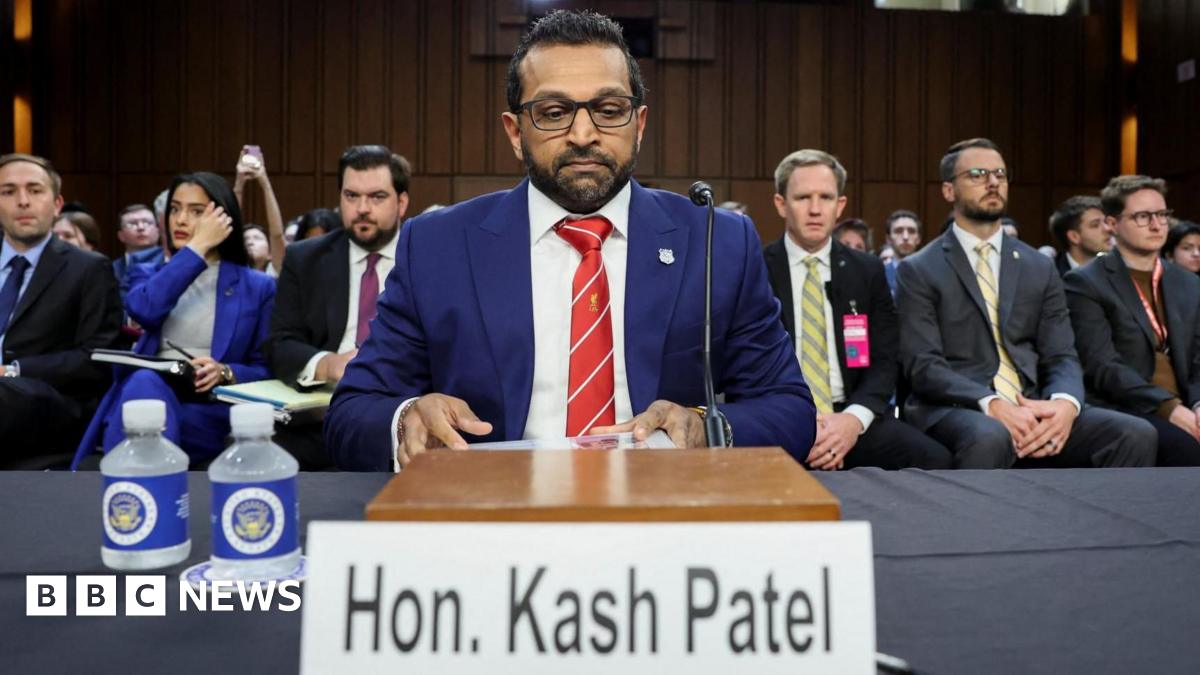Tennessee Explosion at Accurate Energetic Systems Plant Prompts Multi-Agency Investigation
#explosion #tennessee #investigation #emergency_response #public_safety

Overview of the Tennessee Explosion
On October 10, 2025, a massive explosion devastated the Accurate Energetic Systems plant in Hickman County, Tennessee, a facility specializing in military explosives. The blast was so powerful it registered on seismic equipment and was heard up to 20 miles away, shaking homes and shattering windows. Emergency responders faced challenges accessing the site immediately due to ongoing smaller detonations and hazardous conditions. Tragically, 16 people lost their lives in what officials have described as a “mass detonation.”
Ongoing Investigation Efforts
Investigators from multiple federal agencies, including the ATF, FBI, and Department of Homeland Security, continue combing through the debris to determine the explosion’s cause. The complexity and scale of the destruction mean the investigation could take several days. Authorities are carefully analyzing evidence amid safety concerns to prevent further incidents and provide answers to the community and families affected by this disaster.
Community Impact and Response
The explosion shook the small rural town near Nashville, leaving a lasting impact on residents and local infrastructure. Rescue and recovery operations involved hundreds of personnel searching for survivors and securing the area. The tragedy has prompted calls for increased safety measures at facilities handling explosive materials to prevent future catastrophes.
About the Organizations Mentioned
ATF
The Bureau of Alcohol, Tobacco, Firearms and Explosives (ATF) is a pivotal U.S. federal law enforcement agency under the Department of Justice, tasked with safeguarding communities from violent crime, terrorism, and illegal trafficking of firearms, explosives, alcohol, and tobacco. Originally rooted in enforcing tax laws dating back to the 1790s, the ATF evolved from its early focus on alcohol taxation—famously confronting the Whiskey Rebellion—to become a modern regulatory and investigative force. In 2003, its mandate expanded to include explosives, reflecting its growing role in national security. ATF’s core responsibilities include enforcing the Gun Control Act and the National Firearms Act, regulating interstate commerce in firearms and explosives, and investigating arson, bombings, and acts of terrorism. The agency operates a unique fire research laboratory in Maryland, enabling advanced forensic analysis of arson cases. It also partners with state and local law enforcement through initiatives like Project Safe Neighborhoods, leveraging technology and data to disrupt criminal networks and enhance public safety. A notable achievement was the expansion of explosives regulations under the Safe Explosives Act of 2002, which mandated background checks and federal permits for explosives handling. However, ATF has faced criticism, including controversies over high-profile incidents like Ruby Ridge and Waco, and legal battles over regulations, such as its 2009 loss in a case involving amateur rocketry fuels. Today, ATF employs over 5,000 people with a budget nearing $1.5 billion, maintaining a critical presence in both regulatory oversight and criminal investigations. Its work directly impacts industries ranging from firearms manufacturing to alcohol distribution, making it a key player in the intersection of business, technology, and public safety. Despite ongoing debates about its authority and funding, ATF remains central to America’s efforts to combat violent crime and ensure responsible commerce in regulated goods.
FBI
The Federal Bureau of Investigation (FBI) is a premier law enforcement agency in the United States, renowned for its role in protecting the nation from domestic and international threats. Founded on July 26, 1908, as the Bureau of Investigation, it was initially tasked with addressing land fraud and corporate malfeasance under President Theodore Roosevelt[1][2]. Over time, its mandate expanded significantly, particularly with the passage of the Mann Act in 1910, which allowed federal jurisdiction over certain moral offenses[1][4]. ### History and Evolution The FBI underwent significant transformation under J. Edgar Hoover, who became its director in 1924. Hoover implemented strict hiring standards and enhanced operational capabilities, transforming the agency into a robust investigative force[1][4]. The FBI's name was officially changed to the Federal Bureau of Investigation in 1935[5][6]. Throughout its history, the FBI has faced challenges, including concerns about potential abuses of power, but it has consistently demonstrated its value in national security and law enforcement[3][4]. ### Key Achievements The FBI has been instrumental in combating various crimes, including white-collar offenses, civil rights violations, and national security threats. Notable achievements include its role in enforcing the Espionage Act during World War I and its investigations into organized crime throughout the 20th century[2][4]. ### Current Status Today, the FBI is a sophisticated agency with over 37,100 employees, including special agents and professionals in various fields such as intelligence analysis and cybersecurity[5]. It operates in 55 field offices across the U.S. and has an international presence in 81 nations[5]. The FBI continues to evolve, addressing emerging threats like cybercrime and terrorism while maintaining its commitment to justice and integrity. ### Notable Aspects The FBI is known for its rigorous training programs at the FBI Academy in Quantico, Virginia, and its advanced forensic capabilities at the FBI Laboratory. Its work in business and technology includes
Department of Homeland Security
The **Department of Homeland Security (DHS)** is a U.S. federal agency established in response to the 9/11 terrorist attacks to safeguard the nation from a wide range of threats including terrorism, natural disasters, cyberattacks, and border security challenges. Its core mission is to protect the American people, critical infrastructure, and uphold national security by coordinating efforts across government and private sectors. DHS oversees immigration enforcement, cybersecurity, emergency response, and counterterrorism initiatives. Formed in 2002, DHS consolidated 22 federal agencies to create a unified structure for domestic security. Its key components include the U.S. Customs and Border Protection, the Federal Emergency Management Agency (FEMA), and the Transportation Security Administration (TSA). Over the years, DHS has played a critical role in preventing terrorist attacks, enhancing airport security, responding to natural disasters like hurricanes and pandemics, and advancing cybersecurity protections for government and private sector networks. In recent years, DHS has shifted focus towards emerging threats such as unmanned drone attacks on infrastructure, cyber intrusions into financial and critical systems, and disruptions to supply chains. Strategic visions for 2025 and beyond emphasize technological innovation, integration of intelligence, and public-private partnerships to address these complex challenges. The agency’s budget reflects its broad mandate, with over $400 billion allocated for fiscal year 2025, underscoring its significant role in national security and emergency preparedness. Notably, DHS has faced scrutiny and calls for reform, especially regarding immigration enforcement and internal mission clarity. Recent directives have expanded immigration enforcement powers to other federal law enforcement agencies, reflecting policy shifts under different administrations focused on border security. For business and technology sectors, DHS represents a major government player driving innovation in cybersecurity, disaster response technology, and infrastructure protection, while navigating evolving threats in a complex geopolitical landscape. Its ongoing modernization efforts aim to enhance resilience and adapt to future security challenges.
Accurate Energetic Systems
**Accurate Energetic Systems (AES)** is a leading manufacturer of energetic products, serving the military, aerospace, and commercial sectors. Founded in 1980, AES is headquartered in McEwen, Tennessee, with a significant facility spanning 1,200 acres in nearby Bucksnort[1][2]. The company specializes in developing and producing a wide range of explosives, including bulk Mil-Spec and specialty formulations for defense, oil and gas exploration, mining, and demolition applications[1][2]. **History and Achievements**: Over the years, AES has expanded its capabilities through strategic acquisitions, research and development investments, and capital expenditures. This growth has enabled the company to diversify its product portfolio and enhance its services to meet the evolving needs of its clients[1]. AES has been involved in notable projects, including the Space Shuttle program, and has established itself as a trusted supplier of high-quality explosives for various industries[2]. **Current Status**: AES operates as an independently owned small business with approximately 135 employees, generating a revenue of $22.3 million[2]. The company maintains an ISO 9001:2015 certified quality management system, ensuring rigorous quality, safety, and security standards in all operations[1]. Despite past incidents, such as an explosion in 2014, AES continues to prioritize safety and innovation in its manufacturing processes[5]. **Notable Aspects**: AES is recognized for its commitment to customer satisfaction and innovation. The company offers tailored solutions for its clients across different sectors, including aerospace and defense, where it provides advanced energetic materials and technologies[7]. In the mining and blasting industry, AES is valued for its precision and reliability in supplying high-quality explosives and expert blast design services[3]. With a strong focus on quality and safety, AES remains a key player in the energetic materials sector.



















